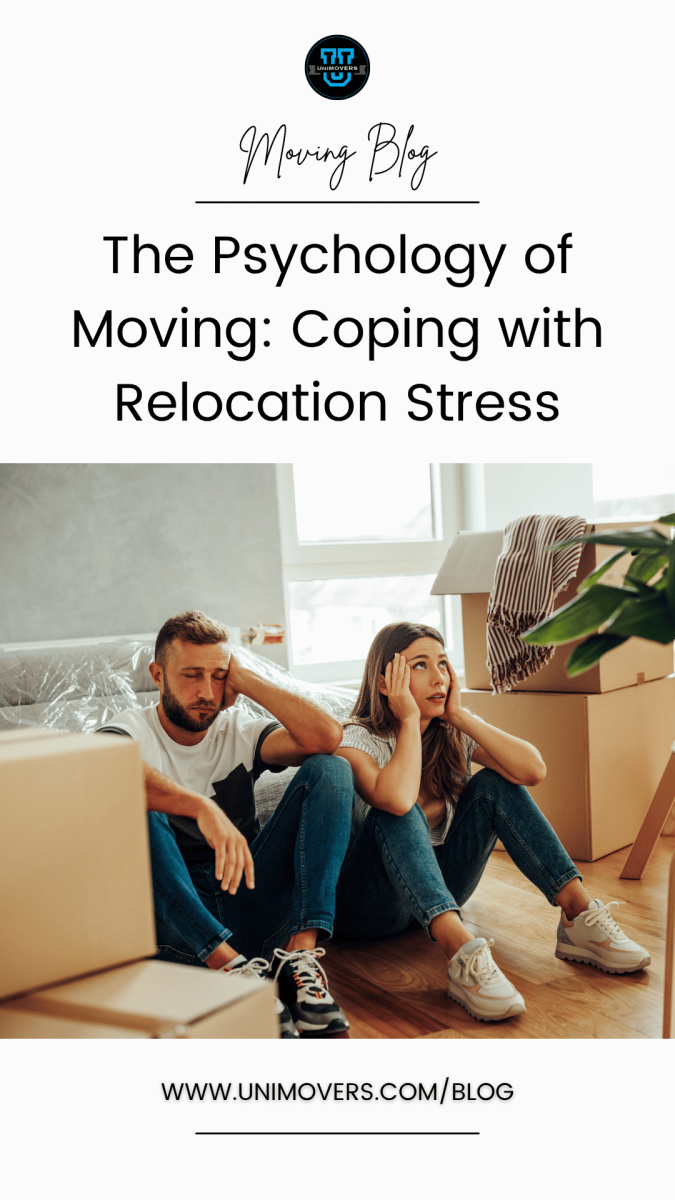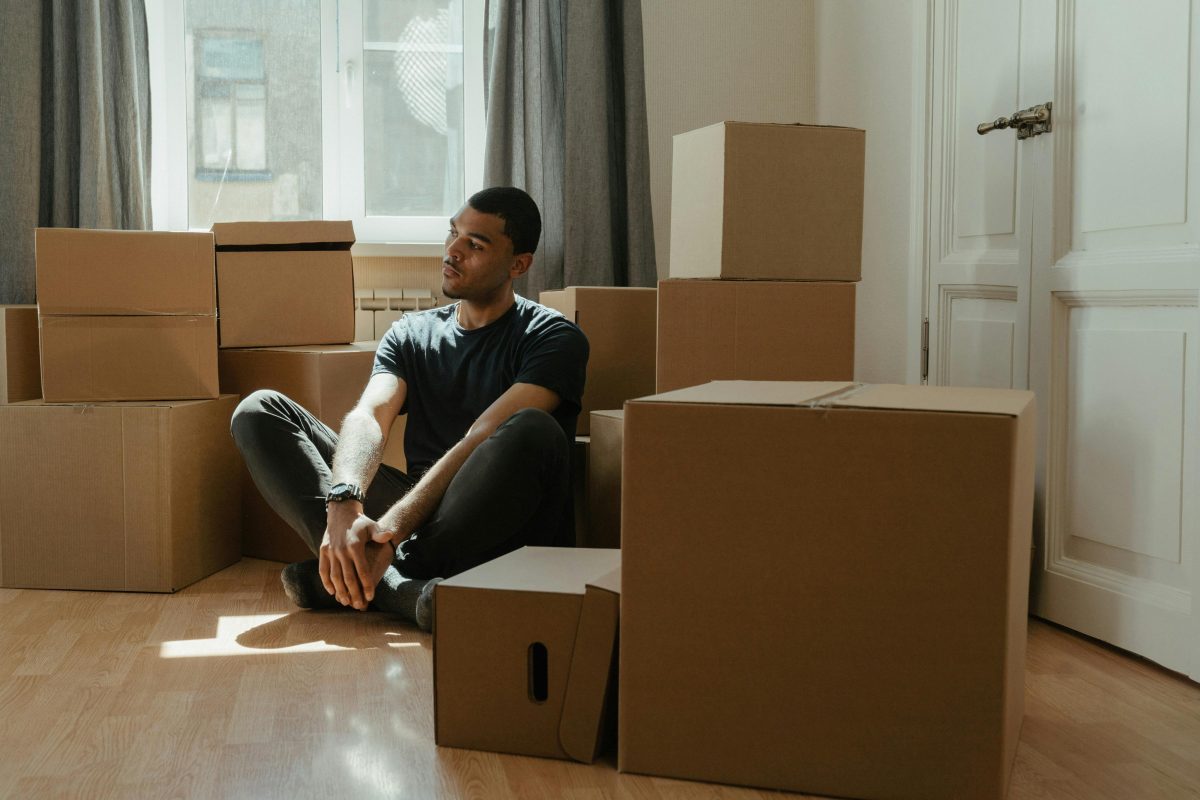Moving to a new home can be both exciting and overwhelming. While many focus on the physical aspects of relocation, it’s important to recognize the emotional toll of the change. The stress of packing, organizing, and adjusting to a new environment can lead to feelings of anxiety and uncertainty. Moving stress often affects your daily routine and your mental and emotional well-being. This change can bring mixed emotions, whether you’re leaving behind friends, family, or a familiar neighborhood. Fortunately, with the right strategies, moving doesn’t have to be an anxiety-inducing experience. With stress-free moving tips, coping with relocation stress will be a piece of cake.
Table of Contents

What Causes Moving Stress?
Moving can bring about several factors that trigger stress. One significant cause is the change in environment and routine. Leaving behind familiar places, neighbors, and daily habits creates uncertainty. People often feel uneasy when their comfort zone is disrupted.
Another source of stress is the separation from familiar people and surroundings. Moving away from friends, family, and local support systems can result in feelings of loneliness and isolation. Logistical challenges and financial pressure also add to the stress. The cost of moving, planning, and coordinating the entire process can feel overwhelming.
There’s also the fear of the unknown. Moving to a new area involves uncertainties, such as adjusting to new schools, workplaces, or local communities. The lack of familiarity often leads to anxiety about how things will unfold. Essentially, moving can disrupt our sense of control and stability.
All these factors contribute to the psychological burden many experience during relocation. Acknowledging these stressors can help individuals take steps toward better managing their move.

How Moving Affects Your Mental Health
Relocating can have a significant impact on your mental health. One of the most common effects is anxiety. The uncertainty of a new environment and routine can lead to feelings of nervousness and worry. There’s a risk of relocation depression, which is another mental health issue that often arises when moving.
The loss of familiar surroundings and social connections can trigger feelings of sadness and isolation. Fatigue is also common during the moving process. The physical and emotional exhaustion of packing, cleaning, and settling into a new place can drain energy levels.
These stressors affect your mind and physical health. Prolonged stress can lead to sleep disturbances, headaches, and weakened immunity. The role of isolation and loneliness cannot be overlooked.
Practical Tips for Coping with Relocation Stress
Moving stress can feel overwhelming, but coping with the emotional and mental toll it brings is possible with the right approach. Caring for your psychological and physical well-being can make a significant difference during a move.
Simple practices such as breathing exercises or mindfulness can help reduce stress and keep you grounded. Journaling is another effective technique. Writing down your thoughts, worries, or plans can provide emotional release and clarity.
Staying connected to loved ones throughout the process is equally important. Regular check-ins, even through text or calls, can help ease feelings of isolation and provide comfort.
Beyond personal practices, seeking out reliable resources for a stress-free move can be incredibly beneficial. Having access to trusted tools, expert advice, and proper planning helps lower anxiety levels. These resources can guide you in organizing the move step by step, giving you a sense of control. However, coping mechanisms can vary from person to person. What works for one may not suit another, so exploring different options is important to find what works best for you.

Stress-Free Moving Tips
Following a few simple, stress-free moving tips can make a big difference in how smoothly your move goes. Start by creating a detailed moving checklist to stay organized and avoid last-minute chaos. Before you begin packing, take time to declutter your home. Getting rid of unnecessary items will lighten your load and make the entire process more manageable.
Whenever possible, share responsibilities with friends or family members. Delegating tasks can prevent overwhelm and help the work go faster. Don’t forget to pace yourself! Moving is both mentally and physically demanding, so it’s important to take breaks and give yourself time to recharge. Rushing through the process can lead to mistakes and added frustration.
By staying organized, leaning on your support system, and approaching the move with patience, you can ease the emotional and logistical strain of relocation. These small, intentional steps can go a long way in reducing moving stress and helping you transition to your new home with confidence.
The Role of Professional Help
Hiring a professional moving company can greatly reduce moving stress. Professional movers handle all the heavy lifting, packing, and logistics, which saves you time and energy. This can allow you to focus on other aspects of the move, like settling into your new home.
When choosing a moving company, it’s important to consider their reputation and experience. Look for a company that has good reviews, offers clear pricing, and provides insurance for your belongings. A stress-free moving company should be reliable, efficient, and transparent about costs.
Their expertise helps to prevent common moving mistakes, such as damage to your property or missing deadlines. Besides, hiring experts can save both time and energy during the relocation process. Their support reduces the mental load, making the entire move less stressful.
Adjusting to Your New Home
After the move, settling into a new environment can take time. It’s important to create a space that feels comfortable and familiar. Start by arranging your furniture and unpacking the essentials to make the place feel like home.
Adding personal touches, like family photos or favorite decorations, can help you feel more at ease. Building new routines also plays an important part in adjusting to your new home. Whether it’s finding a local coffee shop or setting up a new exercise routine, establishing new habits will provide structure and help you feel more grounded.
Connecting with your new neighbors or joining local groups can foster a sense of community. These connections will make the adjustment period easier.

Looking to move soon?
Check out UniMovers and save 30-50% on your move as compared with traditional moving!
Conclusion
Moving brings more than just boxes and logistics—it often comes with emotional weight. The stress of leaving behind familiar surroundings, navigating uncertainty, and managing endless to-do lists can take a serious toll on your mental and physical well-being. From anxiety and fatigue to feelings of isolation, the emotional impact of moving is just as real as the physical demands.
Fortunately, there are ways to lighten the load. Practicing mindfulness, journaling, and staying connected with friends and family can help ease the emotional strain. Breaking tasks into manageable steps and using tools like moving checklists can bring structure and control to an otherwise chaotic process. Professional movers can also take a huge burden off your shoulders by handling the heavy lifting and logistics.
Once the move is complete, creating a sense of home in your new space is key. Simple touches like familiar décor, new routines, and local connections can help turn unfamiliar territory into a place of comfort. With the right mindset and support, it’s entirely possible to reduce moving stress and start this new chapter with confidence and peace of mind.




